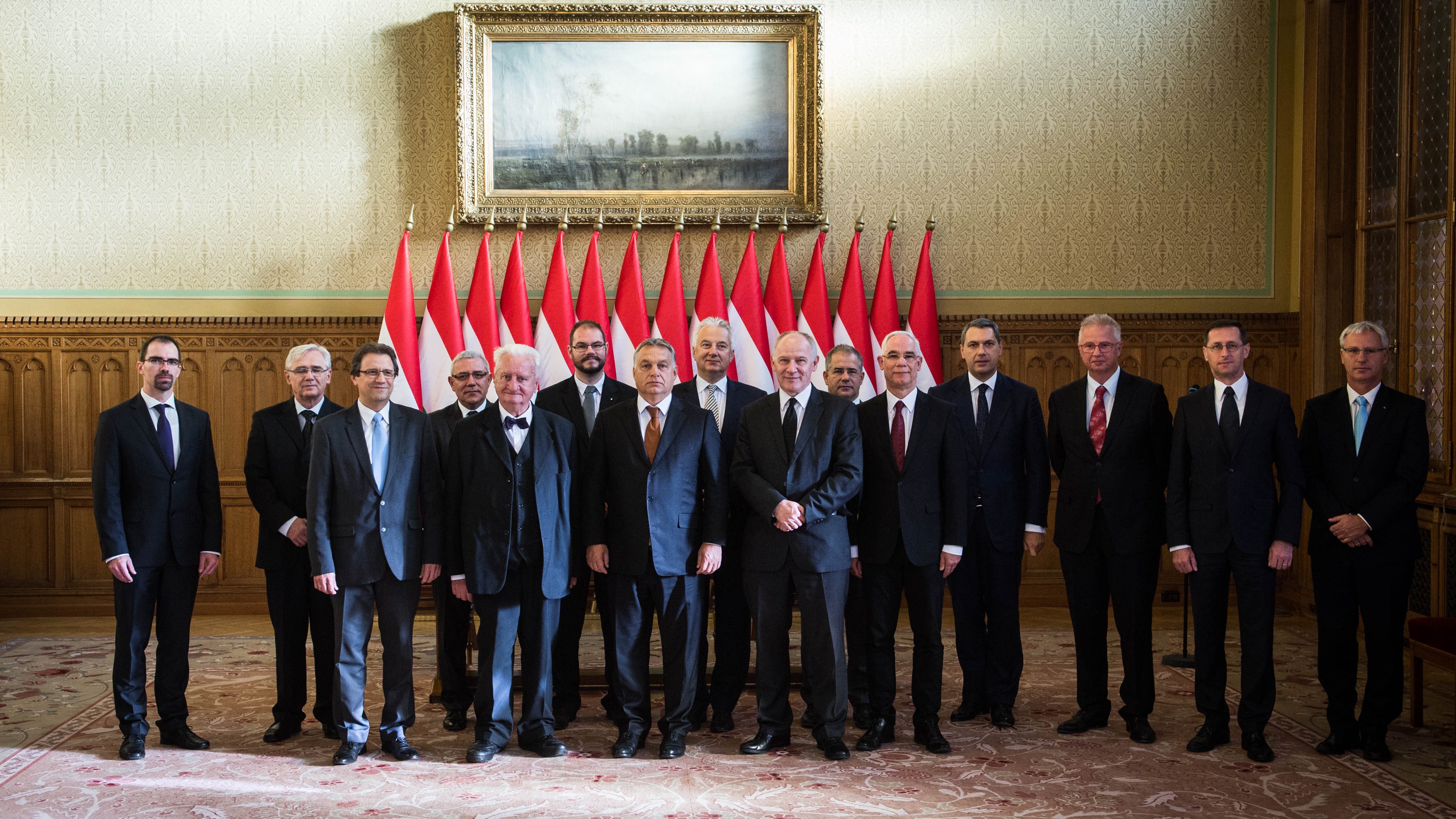
The document, which was signed in representation of the Reformed Church by Pastoral Chairman of the Reformed Church Synod Bishop István Bogárdi Szabó, and Chief Steward and Secular Chairman Pál Huszár, is the renewal of the previous agreement signed in 1998, the Press Chief said.
Also present at the official signing ceremony were Deputy Prime Minister Zsolt Semjén, Minster heading the Prime Minister’s Office János Lázár, Minister of Human Capacities Zoltán Balog, Minister of Justice László Trócsányi, Minister for National Economy Mihály Varga and Minster without Portfolio Lajos Kósa.
The text of the agreement, a copy of which was provided to MTI, states that the renewal of the agreement concluded between the Government and the Reformed Church in 1998 was necessary because of the determining changes that have occurred in Hungary and Europe during the past two decades, and in view of the fact that the public service duties and social activities of the Reformed Church have expanded significantly.

The document states that the Government is glad that the Reformed Church is operating increasing numbers of, amongst others, education, healthcare, family, child and youth protection, and cultural institutions, and accordingly is playing a significant role in providing public services. The Government also acknowledges the Church’s social organisation and public life aspirations, as well as its efforts to help preserve the identity and culture of Hungarian minorities abroad.
The Reformed Church acknowledges the fact that the Government has taken significant steps to include the major Churches in police service duties through providing increasing church and development funding, and enabling the teaching of religious studies in schools.
With regard to public service activities, the parties declare: the Government acknowledges that in addition to its faith-related duties, the Reformed Church also takes part in the performance of activities for public benefit, in view of which the Church is awarded special rights, including the foundation, maintenance and operation of nursery schools of public and higher education, and institutions that are involved in charity, inclusion, diaconal, social, healthcare, family, child and youth protection, sports and environmental protection activities. The Church is also involved in the preservation and creation of cultural values, for instance in the maintenance, preservation and improvement of monuments and collections.
The document also states that the Government supports the Churches religious and public service activities.

According to the agreement, the Government guarantees that with respect to its public service activities the Church will receive the same level of funding as state or local government institutions that perform similar activities. The Government will also ensure that the employees of Church-maintained public education, social and healthcare institutions receive the same individual entitlements as people employed by state or local government institutions.
The agreement reinforces the fact that the Reformed Church is eligible to receive public donations on 1% of personal income tax payments, and that the Government will supplement those donations based on the number of related declarations on the part of citizens.
The agreement also includes the fact that the Government will be putting forward a proposal for the amendment of the Hungarian Act on Higher Education in the interests of having the Károli Gáspár University of the Reformed Church accredited as a special university, in addition to which the Government agrees that the Reformed Theology Academies in Pápa and Sárospatak should request that the Education Authority conduct the required inspection to enable them to be acknowledged as universities of applied sciences.
The agreement also stipulates that the education funding paid to the Reformed Church with respect to its higher education institutions cannot be less than 8.5 billion forints-a-year (EUR 27.2 million).
The document also includes the fact that the Government will not initiate or support and legislative amendments or new laws that would affect the Church is the agreement itself, or which would reduce its beneficiaries, without previously consulting with the Reformed Church of Hungary.
